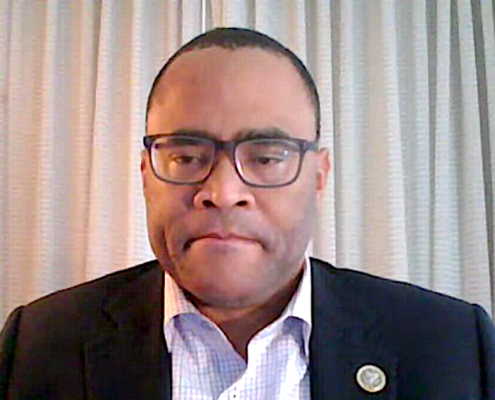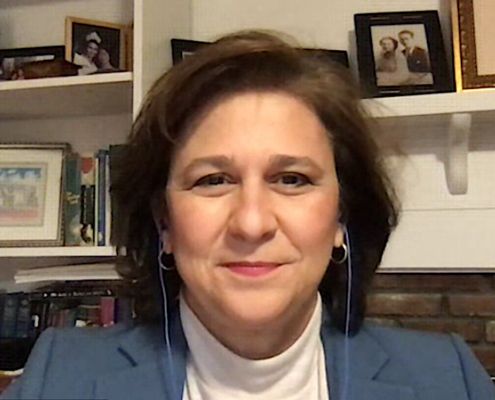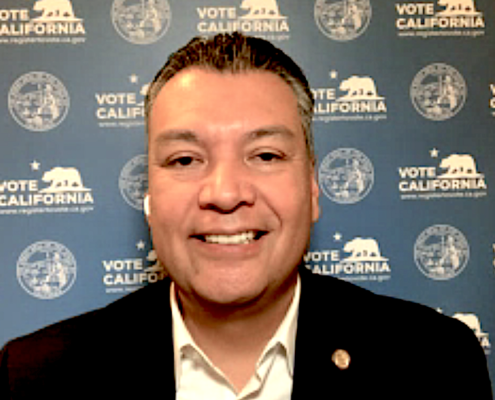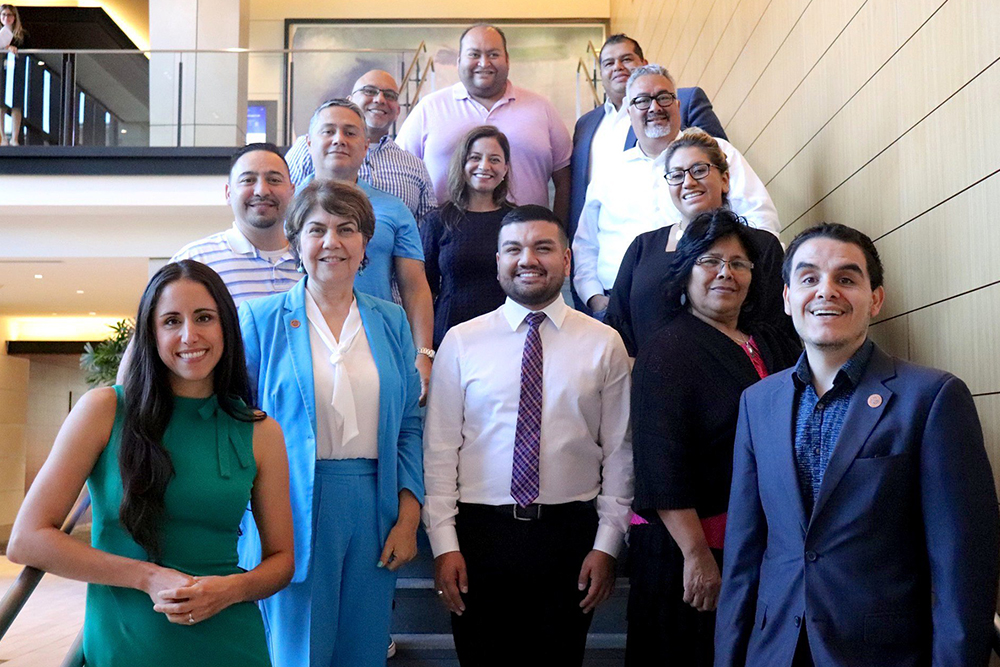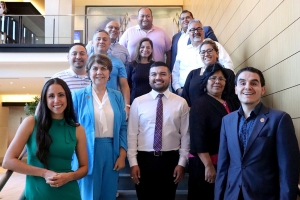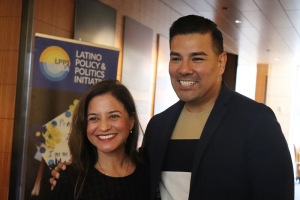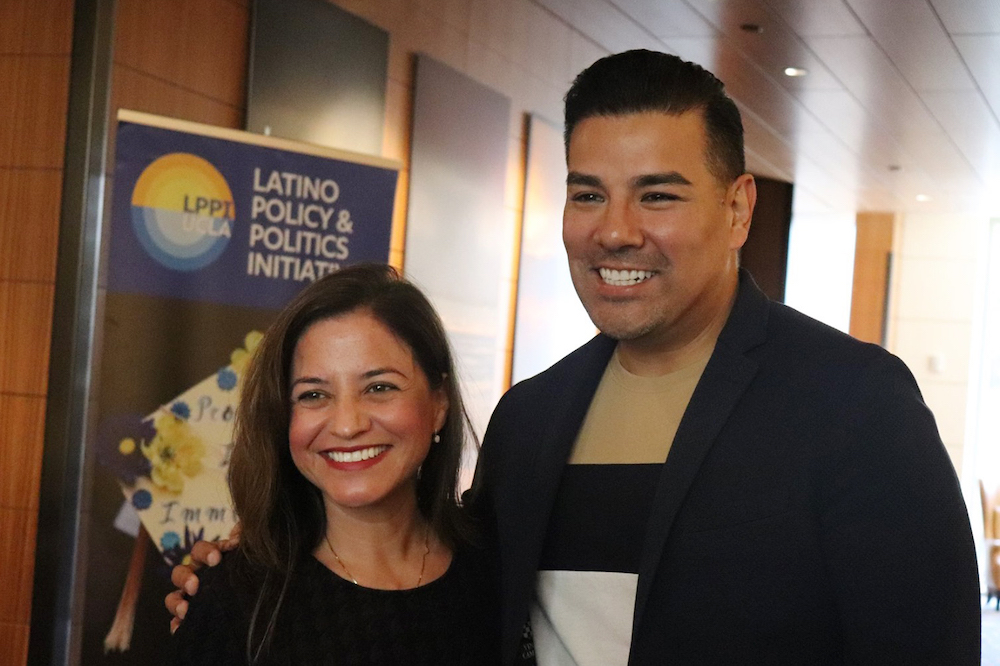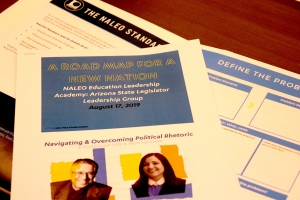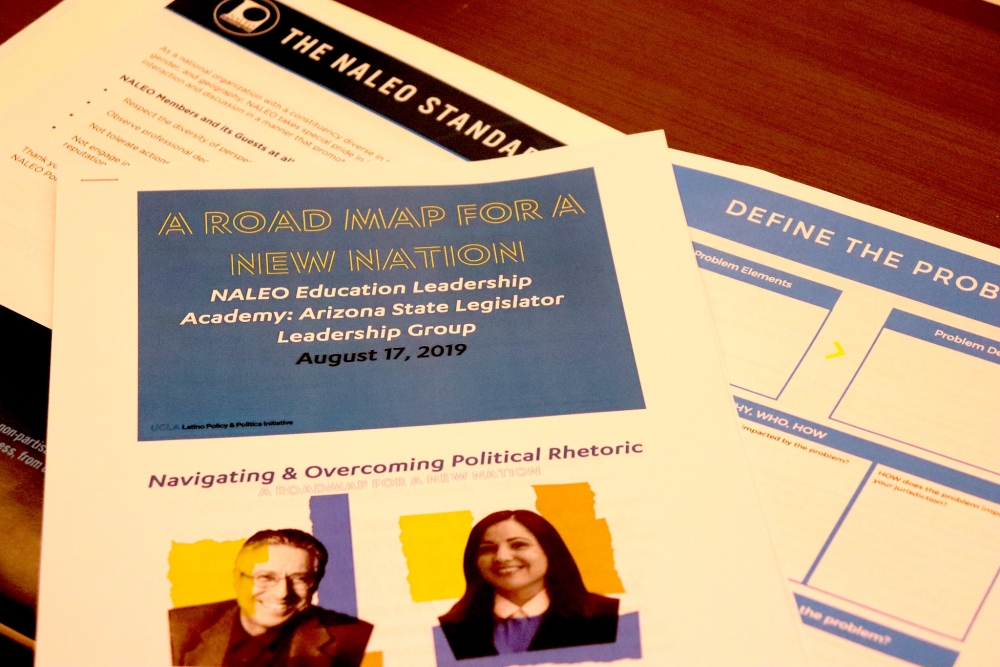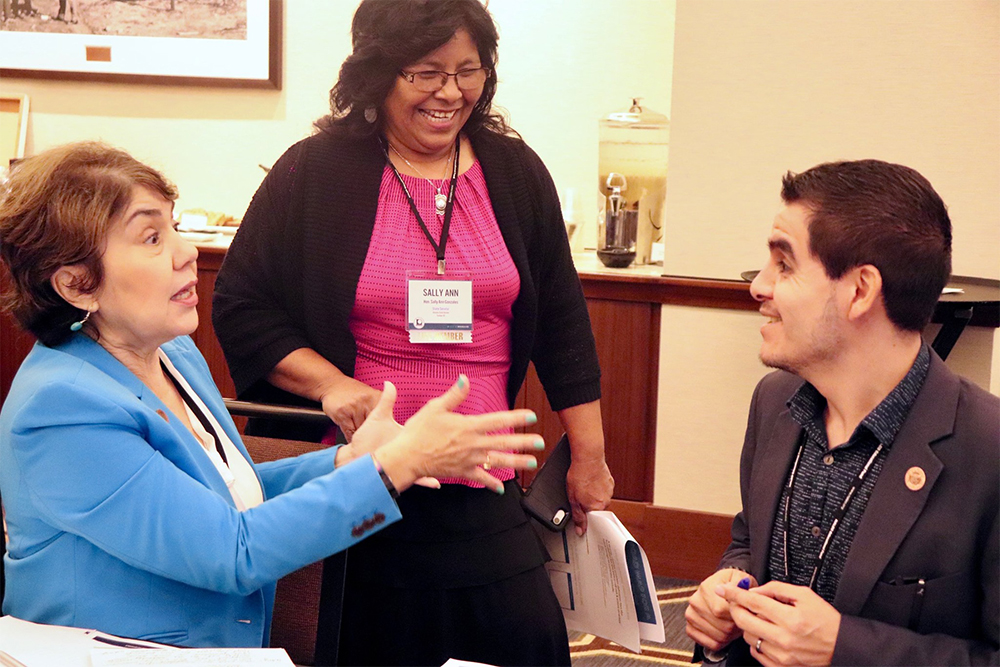Protecting Democracy and the 2025 Redistricting Battles: A Conversation with Xavier Becerra Xavier Becerra and UCLA scholars warn that the fight for fair representation is far from over.
As our country prepares for another election cycle, questions about representation and the integrity of American democracy continue to dominate public discourse. On October 28, the UCLA Luskin School of Public Affairs hosted “Protecting Democracy and the 2025 Redistricting Battles,” a Luskin Lecture co-sponsored by the UCLA Voting Rights Project. The event featured former California Attorney General and U.S. Secretary of Health and Human Services Xavier Becerra, who delivered a keynote address on the challenges and opportunities in protecting democracy ahead of the next round of redistricting.
Becerra was joined by Chad Dunn, director of litigation for the UCLA Voting Rights Project and a lead litigator in the ongoing Texas redistricting lawsuit, and Dr. Natalie Masuoka, professor of Political Science and Asian American Studies at UCLA and an expert on voting behavior and minority representation. The discussion was moderated by Dr. Matt Barreto, professor of Political Science and Chicana/o Studies and faculty director of the UCLA Voting Rights Project.
Drawing from his decades of public service at the state and federal level, Becerra underscored the fragility of democratic systems when power is unchecked. “As we’ve seen over the last 10 months, the federal government has a ton of power, and wields it in ways that exceed what the Constitution intends,” he said. “There are limits to federal power, but if you have someone who decides to exceed the scope of that power, you can see how damaging it can be for the states.”
Throughout the evening, panelists emphasized the critical importance of ensuring that voters retain control over the redistricting process. Becerra contrasted California’s citizen-led commission process with state-controlled redistricting systems in Texas and Florida. “In California, voters have a say. In Texas, the people living in those voting districts have no say in how the maps are drawn,” he said.
The conversation explored the upcoming Proposition 50 vote in California, which would temporarily establish new district boundaries based on the latest population data. Becerra and his fellow panelists examined how the proposal could affect representation, particularly for communities of color.
Dunn, who has spent years challenging partisan gerrymandering, framed the issue as a fundamental question of voter rights. “I believe the right to vote is individual, not aggregate,” he said. “If someone is being gerrymandered on the basis of their political views, that is a violation of their right to vote, full stop. And there ought to be a redress for it in court.”
He went on to note that the composition of Congress does not currently reflect the nation’s diversity. “This action to silence voters on the basis of their race and political views will be successful to some degree,” Dunn said. “What California does to press back on it isn’t just fighting fire with fire—it’s ensuring that Congress is as representative as it can be of this nation as a whole.”
Dr. Masuoka emphasized the dual nature of redistricting: while it can be used to suppress certain communities, it can also be a tool for empowerment. “Redistricting can discriminate and marginalize voices of color, but the reason we passed the 1965 Voting Rights Act is that redistricting can also increase minority voting power,” she said. “As we look forward to voting on Prop 50, we can protect democracy and ensure that we have protections for voters of color.”
Becerra urged the students in the audience to remain vigilant and engaged. “The most powerful weapon we have is truth—and the willingness to use our voices and our cameras to protect it.”

